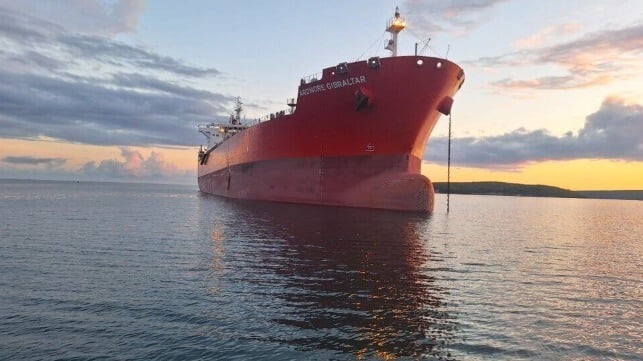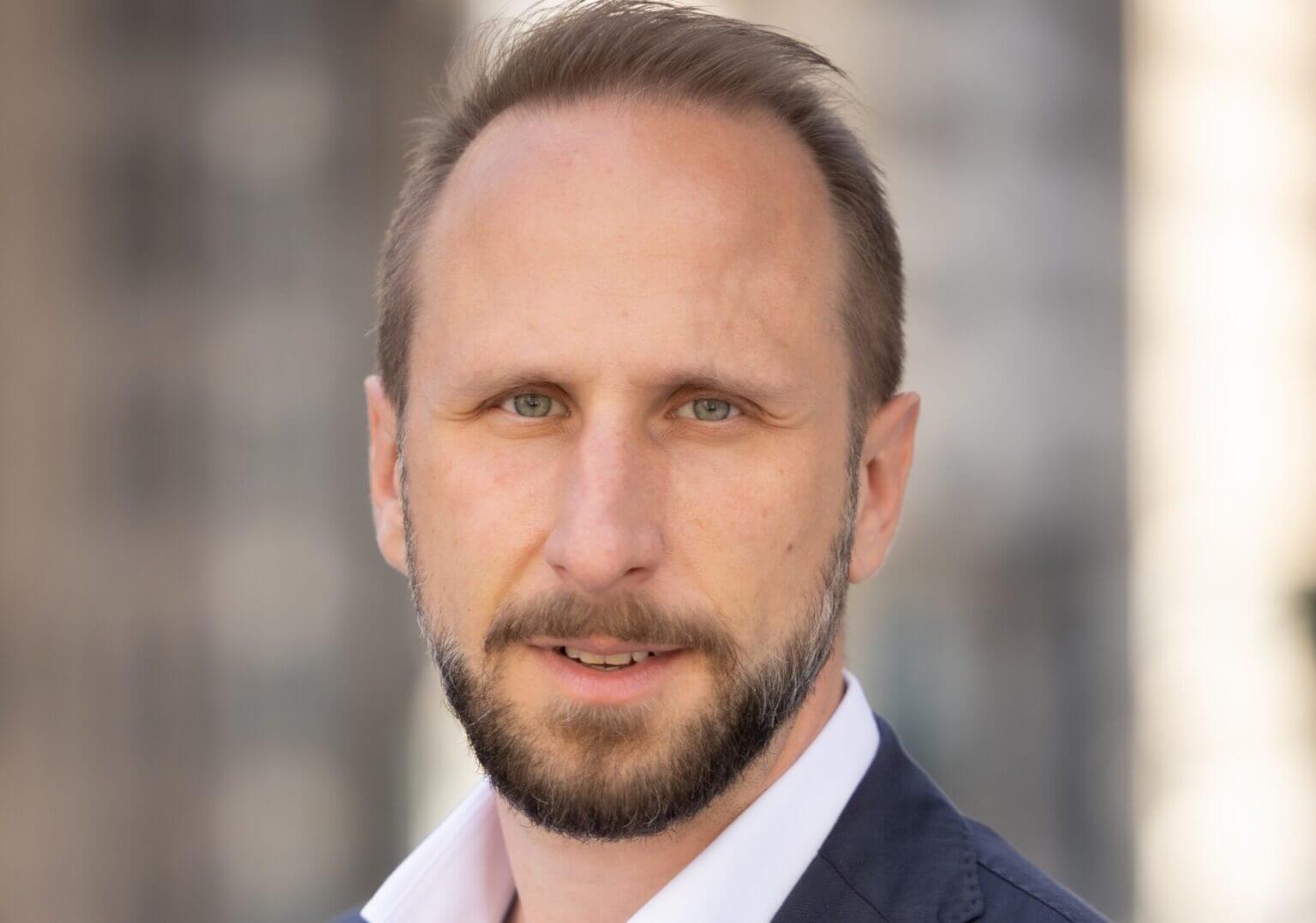Executive Interview: Ardmore Shipping CEO Gernot Ruppelt

Since its founding in 2010, NYSE-listed product tanker specialist Ardmore Shipping has carved out a place for itself as an innovative owner and operator, willing to try out new technology and reap rewards from higher efficiency. A focus on long-term value and a strong balance sheet has paid off, according to Ardmore. To find out more about its secret to success, TME spoke with Ardmore's recently appointed CEO, longtime tanker executive Gernot Ruppelt.
TME: Can you tell us a bit about your career and how you came to Ardmore?
 Ruppelt: I found the maritime business partially by choice, partially by coincidence, and decided to build a life around it. I've been in the maritime industry my entire career, committed to this exciting, very international line of work. I've worked across the globe in five different countries, across three continents - Europe, Asia, and US. I've been with Ardmore since 2013, and as Chief Commercial Officer I led the commercial strategy and developed our trading capabilities, now operating in Europe, Singapore, and Houston.
Ruppelt: I found the maritime business partially by choice, partially by coincidence, and decided to build a life around it. I've been in the maritime industry my entire career, committed to this exciting, very international line of work. I've worked across the globe in five different countries, across three continents - Europe, Asia, and US. I've been with Ardmore since 2013, and as Chief Commercial Officer I led the commercial strategy and developed our trading capabilities, now operating in Europe, Singapore, and Houston.
Before Ardmore, I spent five years in New York as a tanker broker with Poten & Partners. During that time, I was engaged in various project-based businesses, including chemical tankers. I was transacting with Ardmore Shipping when the company was in its early stages, still in startup mode. I recognized then that this was a unique company, with founder and former CEO Anthony Gurnee being very different from anybody I had dealt with.
My career started at Maersk when I joined their management fast-track program. I worked for Maersk in Germany, where I'm from, then Singapore and Denmark, and ultimately the US.
Can you tell us a little bit more about Ardmore? There have been some big changes, including your recent promotion.
I officially became CEO in the middle of September 2024. By then, we had gone through a long-established and well-staged transition process that was initiated by the board in 2020 and kicked into high gear about a year ago.

that matters most
Get the latest maritime news delivered to your inbox daily.
Looking at Ardmore as a business, we have always found ways to evolve over the past 15 years of our existence: expanding the fleet, the public listing in 2013, and really evolving our commercial strategy from a simple, high-quality time charter portfolio to a fully-fledged global trading platform.
We have continuity in terms of strategy and our values, and at the same time we always look to develop and improve. Take as one example the joint venture we have with Anglo Eastern - Anglo Ardmore Ship Management - and many other ways to keep innovating as an organization.
Our company emphasizes internal progression, and we've created this dynamic culture where Ardmore is truly a career escalator. People are encouraged to step up when opportunities arise. We also have a great, fully independent board with real diversity in terms of industry background and specialization.
Can you tell me about current market conditions and what you expect over the next three to five years?
Some of the biggest impacts on our industry - whether it was COVID, the Russian invasion of Ukraine, or more recently, the situation in the Red Sea - were caused by black swan events, and therefore by definition impossible to predict in advance. Today, a great deal of uncertainty remains. But here's what we do know: The product tanker fleet is getting really old. Newbuild ordering activity has picked up recently, but when you compare the number of ships on order to the number that are about to age out of service, the ratio is roughly one to four. That's going to have a positive impact on markets.
We'll continue to see oil consumption and demand for oil products play an important role in the energy mix moving forward. There is also increased focus on a whole range of emerging transition fuels, such as biofuels, and the feedstocks to generate those new fuels and various different blending components.
Shipyards are extremely busy in East Asia and newbuild prices have gotten higher. Do you think it's going to be more difficult for owners to introduce new tonnage into the market?
If you wanted to order a ship today, you'd be looking at a 2028 delivery. As far as Ardmore is concerned, we are in no rush to execute ship acquisitions, while we always monitor the market for opportunities. In the meantime, we continue to execute on our well-established capital allocation policy: we've paid down debt significantly, lowering our break-even point. We've returned capital to shareholders and reinvested in the business in very meaningful ways.
Last year, we sold our oldest ship and bought a 2017-built one, picking up incremental fuel efficiency and more cargo versatility. We've also reinvested in efficiency upgrades on existing ships, some providing 30-40 percent returns on investment or more.
AI and digital tools are increasingly important for competitiveness. How are you seeing these tools helping your operations today?
It's huge. Last year, we completed the rollout of an AI-supported voyage optimization system called DeepSea AI. This goes beyond just optimization of waypoints - it helps make trade-off decisions between marginal cost-saving opportunities and marginal revenue opportunities in real time. While concepts like profit optimization aren't new, the level of granularity now allows us to factor in ambient conditions and fuel costs to create much more dynamic control all throughout the voyage.
We're also embracing AI integration in our onshore corporate processes. You don't have to be a technology firm to be good at technology adoption. Some products are available off the shelf, some virtually free, and with the right culture and mentality, you can find nearly limitless ways to innovate through technology adoption.
Regarding decarbonization, what kind of strategies are you pursuing?
Our mantra around decarbonization is finding opportunities to integrate performance with progress, rather than choosing between financial performance or decarbonization. We've worked with Value Maritime on CO2 capture-ready scrubbers, which provides interesting optionality for closed-loop operation and carbon capture.
We're engaged with customers around potential long-term projects for alternative fuels, though we're not at the point of making purely speculative investments. For now, we're focused on increasing fuel efficiency and making ships more sustainable and cargo versatile to ensure performance and optionality in the long run.
What are you seeing with geopolitical uncertainties on the horizon?
There are two layers to consider for product tanker demand. The bottom layer is consumption and overall oil demand, combined with how long these products have to travel. The second layer is arbitrage, which can be driven short-term by events, weather or other factors. Geopolitical disruption is one facet, but there are other long-term trends - like refinery dislocation and a changing product demand slate - that are disconnected from geopolitical drivers.
When trades get reorganized, it creates a need for flexibility and optionality, which is good for product tankers. As long as these trade shifts and arbitrage swings continue, it continues to bode well for tanker markets.
Do you have any closing thoughts?
We're really pleased with the company we've built over the last 15 years. We have a team and culture that's excited and ready for what the future holds for Ardmore, and we look forward to continuing to develop the business in the years to come.
